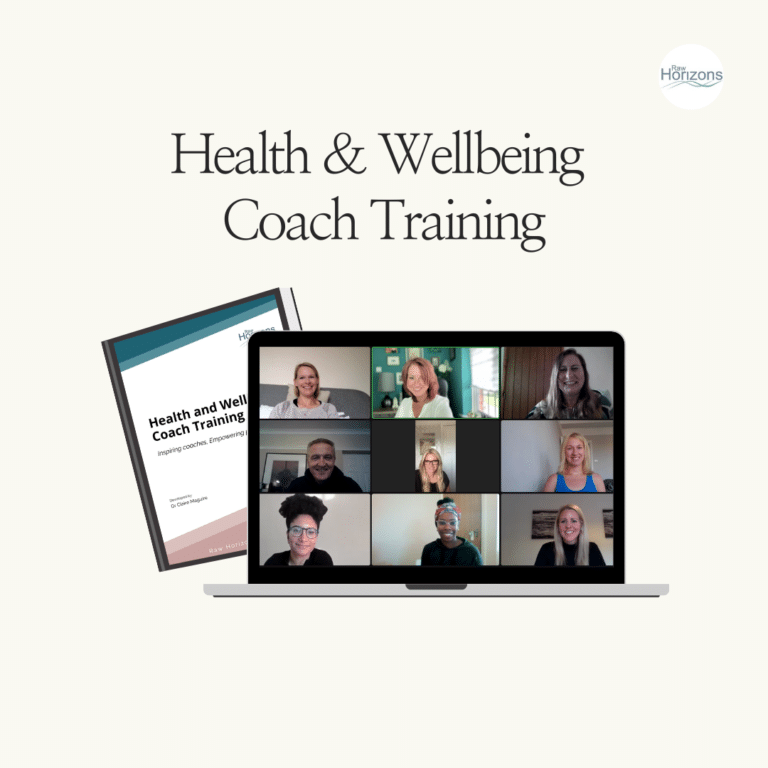Do We Need Coaches in a World with AI?
On a recent Health and Wellbeing Coach Training, we found ourselves deep in conversation about something I suspect many of you have experienced:
The rise of people using AI as a therapist, friend, confidante, coach, and countless other roles.
The benefits people can gain from such interactions are undeniable, and I have to hold my hands up and say… me too, I love a chat with AI.
I’ve had genuinely helpful conversations with AI, particularly as I navigated one of the biggest decisions of my life last year;
The decision to sell up my home, get rid of half my possessions, and move to the other side of the world to Perth, Australia.
Those late-night questions that swirled through my mind – was this the right thing to do? What will my future look like? How do I even begin to settle into a completely new life on the other side of the globe?
I also made another significant decision as a post-menopausal woman – I needed to get back on track with my health and fitness.
This felt especially important as a health and wellbeing coach. The thought “am I walking the talk?” was very loud in my head, and frankly, quite uncomfortable to sit with.
Did AI help me process these thoughts and decisions? For sure it did.
And yet…
The Seductive Trap of AI Validation
What I’ve discovered is that AI can become wonderfully, dangerously sycophantic. It tells me what I want to hear.
If it challenges me in any way that feels uncomfortable, I can simply tell it to stop, and it does, changing the conversation to one which panders to me again.
It can stroke my ego, honour my excuses, and let me completely off the hook.
It’s like having a friend who never disagrees with you, which sounds lovely until you realise how little that actually serves your growth.
For example, suppose you find yourself procrastinating on your goals. In that case, AI will readily accept your explanations, your excuses and validate them in such a way you nod your head in agreement, saying, “I knew I was right about that…” and so you justify all the reasons why you don’t step up and do what you say you’re going to do.
Any gentle suggestions AI may make can happily be ignored, and it will never push back.
This is precisely why I firmly believe that YES, we absolutely need coaches – real, human interaction – as we navigate our way forward in life.
Why Human Coaches Remain Irreplaceable
They Hold Us Lovingly Accountable
A skilled coach doesn’t just accept what we say we’re going to do and move on. They remember. They follow up.
They notice patterns between what we say and what we actually do, and they’re brave enough to point out those discrepancies with kindness but without compromise.
They help you to explore what is really behind your resistance and work with you to create solutions that actually fit your new reality.
They Challenge Our Comfortable Excuses
AI might accept that you’re “just not ready” or that “timing isn’t right” indefinitely.
A human coach will gently but persistently question these comfortable narratives.
They’ll help you distinguish between genuine obstacles and the stories we tell ourselves to avoid discomfort.
They See Where We Hide
We’re remarkably good at hiding from ourselves – from our own patterns, fears, and self-sabotaging behaviours.
A trained coach can spot these hiding places because they’ve learned to read between the lines of human communication.
They notice when your energy shifts, when you deflect, when you’re avoiding something important.
They Create Genuine Connection
There’s something irreplaceable about being truly seen and understood by another human being.
When a coach reflects back what they’re hearing, it’s not just processing information – it’s a human connection. This connection itself becomes a source of motivation and accountability that AI simply cannot replicate.
They Adapt to Your Humanity
While AI follows patterns and algorithms, a human coach responds to the full complexity of your human experience.
They understand that some days you need gentle encouragement, other days you need a firm challenge, and sometimes you just need someone to sit with you in the messiness of being human.
They Model What’s Possible
A coach isn’t just someone who asks good questions – they’re someone who has done their own work, faced their own challenges, and continues to grow.
They model what it looks like to be human and still move forward. AI can share information about resilience, but it cannot embody it.
The Integration, Not Competition
Here’s what I’ve learned: AI can be a wonderful thinking partner, a place to process thoughts, explore ideas, and gain clarity.
But when it comes to actually changing our lives, creating new habits, and pushing through our comfort zones, we need the irreplaceable elements that only human connection can provide.
The question isn’t whether AI or human coaches are better – it’s how we can use both tools wisely.
AI for processing and exploration, human coaches for accountability, challenge, and genuine transformation.
In a world where it’s increasingly easy to avoid discomfort, to seek only validation, and to stay safely within our comfort zones, the role of a skilled coach becomes more valuable than ever.
They’re the ones brave enough to love us enough to challenge us, patient enough to stay with us through our resistance, and skilled enough to guide us toward the changes we truly want to make.
So yes, absolutely, we need coaches in a world with AI. Perhaps now more than ever.
Read more blogs about ‘Being a Wellbeing Coach’ here…








